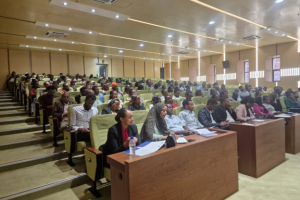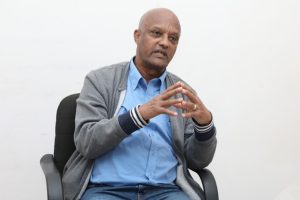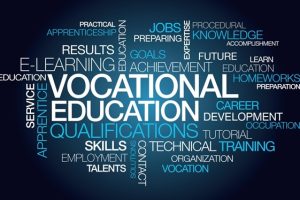
Nelson Mandela once said, “Education is the most powerful weapon which you can use to change the world.” For Africa, this is not just a noble sentiment—it is a necessary roadmap for a brighter, more prosperous future.
Experts agree that the transformation of Africa is not a distant dream—it is an achievable goal grounded in the strategic empowerment of its people through education. By fostering a culture of learning, curiosity, and innovation, African nations can build resilient economies, strengthen democracies, and uplift millions from poverty.
Currently, education and knowledge have become more important than ever in driving societal progress and development. Across the globe, countries and regions are investing heavily in educational initiatives to empower their citizens and secure a brighter future. In Africa, efforts to transform the continent through education and knowledge have been gaining momentum, with governments, organizations, and individuals working tirelessly towards this common goal.
Education is widely recognized as a fundamental human right and a key driver of economic growth and social development. In Africa, access to quality education has the potential to uplift communities, reduce poverty, and bridge the gap between the rich and the poor. By investing in education, African countries can equip their citizens with the skills and knowledge needed to succeed in the modern world and contribute to the overall progress of the continent.
Despite the increasing focus on education in Africa, the continent still faces numerous challenges that hinder its transformation through knowledge and learning. Limited access to quality education, inadequate infrastructure, and a shortage of qualified teachers are some of the key obstacles that African countries must overcome to realize their full potential. Additionally, socio-economic disparities, cultural barriers, and political instability further complicate efforts to improve education outcomes in Africa.
To address these challenges and promote education and knowledge in Africa, a variety of initiatives and programs have been launched by governments, non-profit organizations, and international partners. One such initiative is the African Union’s Agenda 2063, which seeks to promote a knowledge-based society through investments in education, science, and technology. Similarly, the United Nations Educational, Scientific, and Cultural Organization (UNESCO) is working closely with African countries to improve educational access, ensure quality, and relevance across the continent.
So far, investing in education and knowledge has far-reaching implications for Africa’s economic development and prosperity. By equipping citizens with the skills and knowledge needed to enter the workforce and contribute to the economy, African countries can drive innovation, foster entrepreneurship, and attract foreign investment. Moreover, a well-educated population is better equipped to address complex social challenges, such as healthcare disparities, gender inequality, and environmental sustainability.
Recently, Education Minister Prof. Berhanu Nega said that Africa must adapt to the rapidly changing global landscape so as not to be left behind the rest of the world.
The Minister, in his remarks at the closing ceremony of the Innovation Africa 2025 Summit, stressed the urgent need for Africa to adapt to the rapidly changing global landscape.
“Are we, Africans, going to continue down the same path as in the past, or will we confront this emerging world with intentionality?” he asked.
Africa must address issues on how to deal with the crisis related to climate change, technology, and the rapidly changing world order on a daily basis, according to the Minister.
If not, Prof. Berhanu noted that the rapidly changing world doesn’t just leave Africa behind but may also consume Africa.
“For us Africans, the most important question that we have to address is that are we going in the same way as we did in the past or are we going to confront this emerging world with intentionality, with knowing where we want to go so that we are not continuously going to be behind the rest of the world.”
According to him, Ethiopia in this respect is conscious of these developments of the dynamic world than any time in the past amid challenges that hinder the nation’s moving forward.
The approach of the nation is rooted in understanding not only geopolitical shifts but also the evolving nature of knowledge and education, he added.
“Here in Ethiopia, our understanding of how we move forward is founded on a very important understanding of where the world is going, not only in terms of geopolitics, the nature of the global order which are all important, but also in terms of the way the world is going in terms of knowledge and what is important in knowledge.”
The Minister further stated that Ethiopia has undergone significant educational reforms of integrating the education system, aligning assessments with children’s capabilities, and improving school infrastructures to create a more conducive learning environment.
The three-day Innovation Africa 2025 Summit held in Addis Ababa addressed critical issues such as national strategies for enhancing quality education, skills development, teacher training, capacity building, and the integration of digital technologies, among others.
In sum, technology has emerged as a powerful tool in transforming education and knowledge in Africa. Online learning platforms, digital resources, and mobile applications have revolutionized the way people access information and acquire new skills.
In remote and underserved communities, technology-enabled education programs have the potential to reach a wider audience and bridge the digital divide. By embracing technology, African countries can leverage digital resources to enhance teaching and learning outcomes and equip students with the 21st-century skills needed to succeed in a rapidly evolving world. Efforts to transform Africa via education and knowledge are essential in empowering the continent’s citizens, driving economic growth, and building a sustainable future.
BY TEWODROS KASSA
THE ETHIOPIAN HERALD FRIDAY 23 MAY 2025




